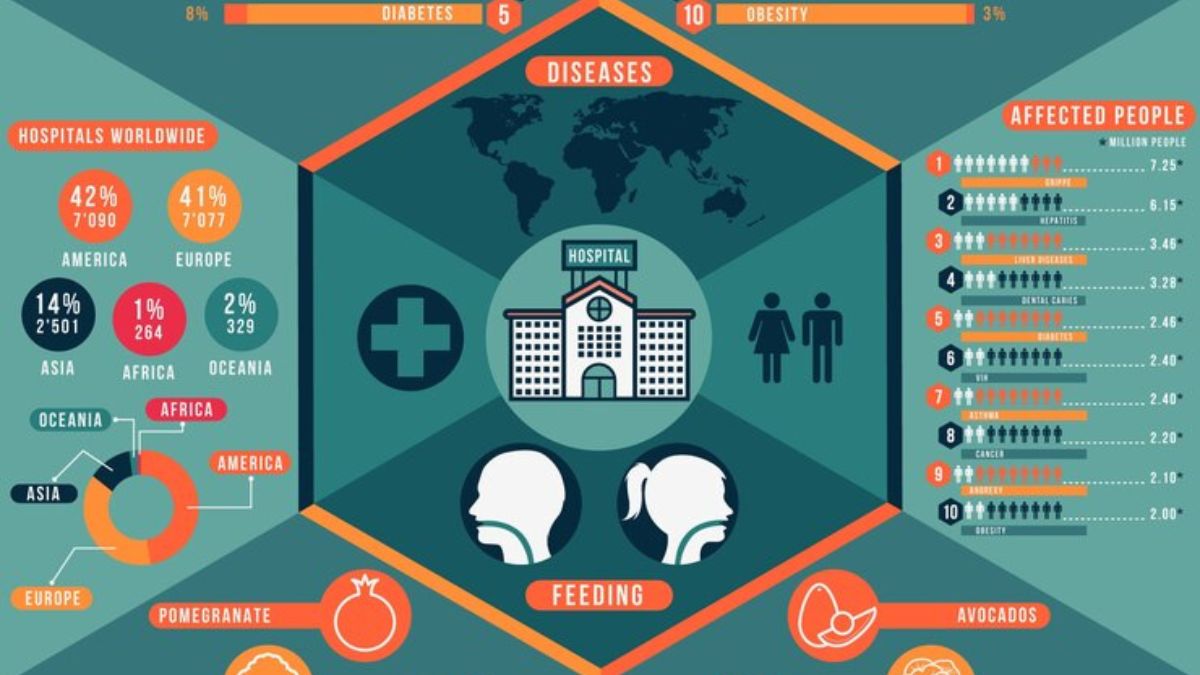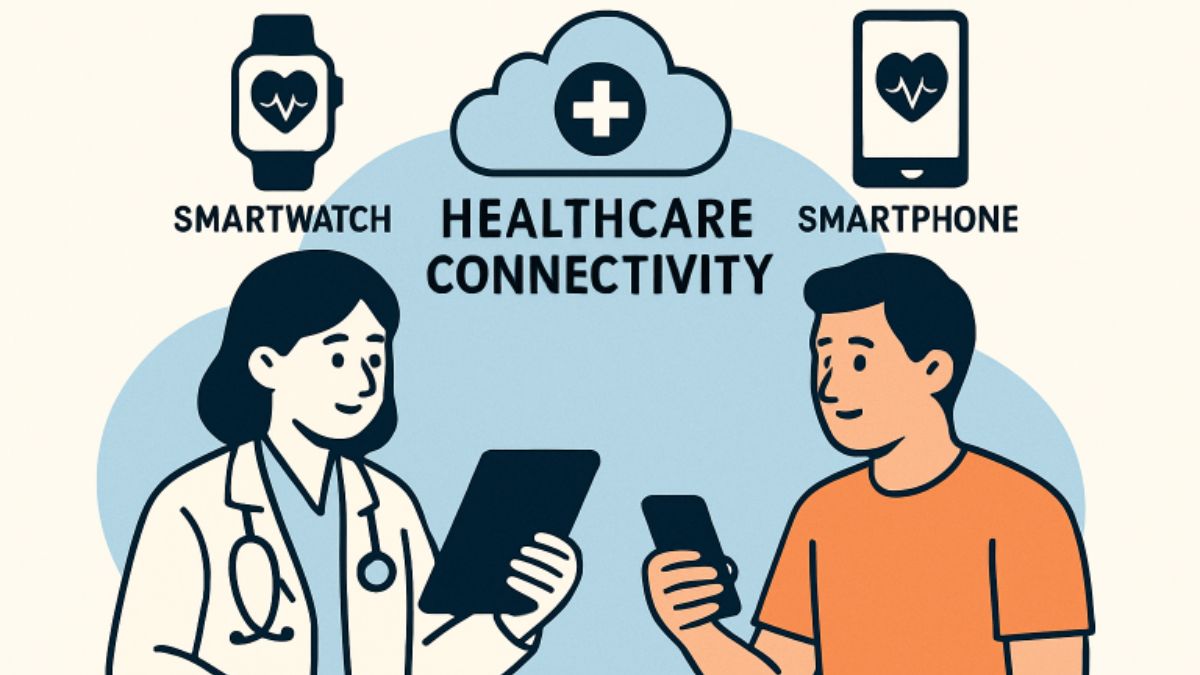Health
Mastering the Game: A Comprehensive Overview of the voldis cheatsheet

In the ever-evolving world of gaming, players are always on the lookout for tools that can give them an edge. Enter the voldis cheatsheet a dynamic resource designed to enhance gameplay and streamline strategies. Whether you’re a casual gamer or a dedicated pro, this cheatsheet could be your secret weapon. With its comprehensive layout and user-friendly design, navigating through complex games becomes more manageable than ever.
Imagine having all vital information at your fingertips—strategies, tips, and shortcuts neatly organized in one place! The Voldis Cheatsheet is not just another tool; it’s a game-changer that helps you level up your skills faster and smarter. Ready to dive into what makes this cheatsheet so special? Let’s explore how it works and why it’s essential for gamers everywhere!
What is a cheatsheet and how does it help in gaming?
A cheatsheet serves as a quick reference guide for gamers. It compiles essential information, tips, and strategies in one accessible format. This tool can be crucial during intense gameplay or when tackling particularly challenging levels.
By providing shortcuts and key details, cheatsheets help players optimize their performance. They allow users to grasp game mechanics without sifting through extensive manuals or forums.
Using a cheatsheet can reduce frustration and enhance the overall gaming experience. Players can focus on enjoyment rather than getting stuck on tricky sections of a game.
Moreover, many gamers find that having this handy resource boosts confidence. With all necessary info at their fingertips, they feel more prepared to face any challenge that comes their way.
The History of the Voldis Cheatsheet and its Evolution
The Voldis Cheatsheet has a fascinating history rooted in the gaming community’s quest for efficiency. Initially created by a group of dedicated players, it aimed to simplify complex mechanics and strategies.
Over time, the cheatsheet evolved as new games emerged and gameplay dynamics shifted. Early versions focused on basic tips and shortcuts.
As demand grew, so did its content depth. Players began contributing their insights, leading to a collaborative environment where knowledge flourished.
Now, the Voldis Cheatsheet is a living document. It adapts continuously with updates that reflect the latest game patches and player discoveries.
How to Use the Voldis Cheatsheet
Using the Voldis cheatsheet is straightforward and user-friendly. Begin by familiarizing yourself with its layout. The organized sections are designed for quick reference.
When you encounter a challenge in your game, simply locate that specific section on the cheatsheet. It contains valuable tips, strategies, and shortcuts tailored to various situations.
Don’t hesitate to cross-reference multiple entries if needed. This can provide deeper insights or alternative approaches to tackle tough levels.
It’s also beneficial to keep the cheatsheet handy while playing. Whether printed out or on a separate device, easy access enhances your gaming experience without interrupting your flow.
Engaging with community forums can deepen your understanding of how others use the Voldis cheatsheet effectively. Exchanging experiences often leads to uncovering hidden gems within this tool!
Tips and Tricks for Maximizing the Voldis Cheatsheet’s Potential
To get the most out of the Voldis cheatsheet, start by familiarizing yourself with its layout. The more you understand where to find information quickly, the smoother your gaming experience will be.
Next, prioritize key sections that align with your gameplay style. Focus on strategies and combos that resonate with your tactics. This ensures you’re not overwhelmed but rather empowered by the information available.
Regularly update your knowledge base. Video games evolve frequently; thus, revisiting the cheatsheet can provide fresh insights or adjustments for new patches or updates.
Incorporate practice into your routine. Use what you learn from the cheatsheet during actual gameplay sessions. This hands-on approach reinforces techniques and helps integrate them naturally into your strategy.
Share tips and experiences with fellow gamers who also use the Voldis cheatsheet. Engaging in discussions can uncover hidden gems of wisdom that enhance everyone’s game!
Common Misconceptions about Using Cheatsheets in Gaming
Many gamers believe that using cheatsheets makes them less skilled. This misconception overlooks the fact that cheatsheets can enhance gameplay by providing strategies and insights.
Another common myth is that relying on a cheatsheet indicates laziness. In reality, savvy players use these tools to save time and focus on mastering complex aspects of the game.
Some argue that cheatsheets ruin the competitive spirit. However, they can actually level the playing field by equipping all players with similar information, fostering fair competition.
There’s also a belief that using a cheatsheet will lead to bans or penalties from developers. Most games tolerate their usage as long as it doesn’t involve cheating in online play.
Understanding these misconceptions allows players to utilize resources like the Voldis Cheatsheet more effectively without guilt or hesitation.
Conclusion:
The journey with the Voldis Cheatsheet can transform your gaming experience. By leveraging its insights, players can navigate challenges more effectively.
This cheatsheet offers structured information that simplifies complicated game mechanics. It empowers gamers to make informed decisions and elevate their skills.
As you explore different games, understanding how to utilize this tool is essential. Each session becomes an opportunity for growth and mastery.
Relying on the strategies presented helps maintain engagement while reducing frustration. Embrace the dynamic nature of gaming with a valuable resource at your fingertips.
FAQ’s
What is a voldis cheatsheet?
A voldis cheatsheet serves as a reference guide packed with helpful information tailored specifically for various games. Gamers use it to streamline their gameplay, understand mechanics better, and ultimately improve their skills.
Is using a cheatsheet considered cheating?
Not at all! Cheatsheets are simply aids designed to help players engage more deeply with the game. They act as guides rather than shortcuts, enhancing understanding instead of bypassing challenges.
Can I rely solely on the Voldis cheatsheet to master my favorite game?
While the cheatsheet offers valuable insights, it’s essential to pair it with hands-on experience. Playing consistently will deepen your understanding and hone your instincts beyond what any sheet can provide.
Health
Advances in Patient-Focused Healthcare Solutions

The modern healthcare landscape is rapidly evolving, with new technologies emerging to address the pressing needs of patients worldwide. Hospitals, clinics, and healthcare providers are increasingly turning to digital innovations, such as electronic health records and artificial intelligence, to deliver more efficient and tailored services. These cutting-edge approaches empower individuals to become active participants in their care while enhancing the quality and accessibility of treatment for everyone involved. For those seeking the latest updates and offerings in pharmaceutical products Canada, technology-driven healthcare transformation is having a direct impact on the industry.
By investing in solutions that prioritize patient experiences and personalized outcomes, medical professionals are better equipped to diagnose, treat, and monitor a wide spectrum of health conditions. Advanced tools not only speed up diagnosis but also open new opportunities for delivering remote care and real-time patient engagement, all while maintaining a focus on individual needs.
These advancements are also paving the way for more holistic and comprehensive patient management strategies. Whether through remote monitoring devices, digital health platforms, or advanced analytics, the collective goal is to create a patient-centered healthcare system that is responsive, accessible, and adaptive to the changing demands of modern society.
Patients today are more informed than ever before, thanks to the digital revolution and increasing emphasis on patient education. This shift in focus not only fosters trust and collaboration between patients and their healthcare providers but also ensures that care is more responsive to unique individual circumstances and preferences.
Artificial Intelligence in Healthcare
Artificial intelligence is revolutionizing the way healthcare providers deliver patient care. By leveraging advanced algorithms, AI-powered tools can process vast amounts of medical data in real time. This leads to earlier and more accurate diagnoses for conditions such as sepsis, cancer, and cardiovascular disease, helping to lower mortality and morbidity rates. According to Forbes, AI applications are projected to save the healthcare economy $150 billion by 2026.
Mobile Health Solutions
Mobile health (mHealth) applications are bringing healthcare directly into patients’ hands, transforming access and engagement. These platforms allow users to easily communicate with providers, schedule appointments, and receive timely reminders, all from their mobile devices. Secure messaging and medical record access have greatly improved patient satisfaction, allowing individuals to be at the center of their care process. Companies and clinics leveraging mHealth can offer more responsive support and build lasting, trust-based relationships with their patients.
Wearable Technology
Wearable technologies are changing the landscape of continuous health monitoring and disease prevention. Devices such as fitness trackers, smartwatches, and medical-grade biosensors monitor vital signs and behaviors around the clock, providing actionable insights both to the user and their healthcare provider. Patients can now track their heart rate, blood pressure, sleep patterns, and more, using this data to stay informed about their health and intervene earlier when issues arise. The use of wearables enhances clinicians’ ability to craft personalized treatment plans based on real-time information collected outside traditional clinical settings.
Interactive Patient Care Systems
Interactive patient care (IPC) systems bring an innovative and engaging element to the patient experience, especially during hospital stays. These in-room technologies provide access to educational content, entertainment, and real-time feedback tools, all designed to foster a positive and informed environment for recovery. IPC systems can sync with electronic health records to deliver tailored educational modules specific to an individual’s condition, medication, or aftercare needs. This increased engagement has been shown to drive better health outcomes through improved compliance and patient satisfaction.
Point-of-Care Innovations
Point-of-care (POC) technologies are transforming immediate care delivery by enabling diagnostics and therapeutic interventions at the site of patient care. Tools such as portable diagnostic devices, rapid test kits, and cloud-connected platforms eliminate unnecessary delays associated with central laboratory processing, streamlining workflows and enabling quicker decision-making. These technologies ensure timely interventions, reduce the burden on healthcare systems, and help patients achieve better health outcomes by accelerating the entire care process. Point-of-care innovations are particularly important in emergency departments, rural locations, and underserved communities where access to centralized resources may be limited.
Challenges and Considerations
Despite remarkable progress, patient-focused healthcare advancements also bring significant challenges. Patient data security and privacy remain top concerns, particularly as more information is transferred between devices and stored in the cloud. Interoperability between different healthcare technologies, electronic records, and platforms is also critical for creating seamless patient experiences. Additionally, ensuring equitable access to these innovations is vital to prevent disparities and ensure that everyone benefits from technological progress. Health systems must remain vigilant in addressing these obstacles to build a strong, sustainable future for patient-centric care.
Conclusion
Ongoing advances in patient-focused healthcare solutions are reshaping how care is delivered, with technology playing a central role in driving accessibility, responsiveness, and personalization. By prioritizing innovations that empower both patients and providers, the healthcare industry is moving closer to realizing its vision of comprehensive, high-quality care for all. As more individuals tap into these technologies, the promise of better health, improved experiences, and enhanced outcomes becomes an achievable reality.
Health
The Power of Gentle Fitness Classes for Confidence and Mobility in Later Years

Why Fitness Matters in Later Years
Maintaining fitness in later years is crucial for overall health and quality of life. Regular physical activity helps preserve muscle mass, improve balance, and maintain joint flexibility, reducing the risk of falls and injuries. Beyond the physical benefits, exercise supports cardiovascular health, aids in weight management, and promotes better sleep patterns. Staying active can also boost mental well-being by reducing stress, enhancing mood, and sharpening cognitive function, making daily tasks easier and more enjoyable.
For older adults seeking guidance and motivation, working with a certified professional can make a significant difference. Programs such as personal training Reston VA offer tailored exercise plans that accommodate individual fitness levels and goals. Personalized support ensures safe, effective routines that maximize results and help maintain independence and vitality as you age.
Gentle Fitness Classes: Options and Benefits
Tai Chi: Balance, Calmness, and Coordination
Tai Chi is a practical, gentle exercise for seniors, often referred to as “meditation in motion.” It features slow, deliberate movements and focused breathing, making it accessible to everyone. Regular practice enhances balance, flexibility, and posture, thereby reducing the risk of falls and promoting independent living as one ages.
Water-Based Exercise: Joint-Friendly and Fun
Water-based exercises, such as swimming and water aerobics, are beneficial for aging joints because buoyancy reduces impact and the risk of injury. They help individuals with osteoarthritis or mobility issues strengthen their muscles and improve their heart health without experiencing pain. These exercises support joint movement, lower blood pressure, promote heart health, and aid weight management. Group classes add social fun with music and games.
Strength Training: Energy, Balance, and Independence
Strength training helps seniors counteract muscle loss with simple exercises, such as chair squats and wall push-ups, that improve movement, balance, posture, and overall energy. Regular, guided classes ensure safety, motivation, and progress, leading to better ability and confidence to enjoy activities.
The Social and Emotional Impact of Group Classes
Participating in group fitness classes greatly boosts social involvement and emotional health among seniors. These classes not only improve physical health but also reduce loneliness by building bonds among peers with similar objectives. The friendship and camaraderie fostered encourage ongoing participation and strengthen a sense of community. The encouraging environment motivates members, and social events centered around fitness add extra meaning to their lives outside the gym.
Getting Started Safely
Begin exercising with guidance from a doctor or trainer, especially if you have health concerns. Safety is key, so consult with an expert to plan your activity. Community centers and gyms typically offer beginner classes for seniors, featuring trained instructors who can modify exercises to accommodate different mobility levels. Start slowly, pay attention to how your body responds, and keep a consistent routine. Gentle activities, such as Tai Chi, yoga, or water aerobics, can improve your health, foster social connections, and help you appreciate nature. Wear comfortable clothing, stay well-hydrated, and celebrate your progress, no matter how small.
Conclusion
Embracing gentle fitness classes in later years provides benefits that extend far beyond the physical. These programs support mobility and independence, enrich social lives, strengthen emotional health, and help preserve confidence for whatever challenges or adventures the future may hold. No matter your current fitness level, there’s a class or activity that can help you progress—with strength, balance, and joy, making every stage of life vibrant and fulfilling.
Health
Innovative Applications of Modern Chemical Blending Technologies

Modern chemical manufacturing is experiencing a transformation propelled by advanced blending technologies. These improvements are streamlining processes, raising product quality, and prioritizing sustainability across industries. Whether it’s pharmaceuticals or agriculture, innovations in chemical blending are unlocking solutions to some of the world’s toughest challenges. Choosing the right industrial mixer is becoming critical as manufacturers face heightened demands for consistency, safety, and environmental compliance.
Empowered by digitalization, artificial intelligence, and new eco-friendly approaches, today’s chemical blending practices are radically different from those of just a decade ago. As companies strive to minimize waste and resource use, novel technologies are enabling shifts toward greener production and greater operational agility.
Advanced Mixing Systems in Agriculture
The agricultural sector is a prime example of how advanced mixing technologies yield real-world benefits. New systems incorporate turbulence-enhancing mixer designs and closed-loop controls that facilitate optimal blending of agrochemicals. These improvements ensure that inputs like fertilizers, pesticides, and micronutrients are delivered with precision, minimizing chemical runoff and environmental contamination. With digital sensors tracking pH, temperature, and nutrient loads in real time, farmers are seeing increased yields while reducing waste.
Moreover, digital control systems can automate mixing operations, allowing farmers and agronomists to focus on crop management rather than manual mixing. As sustainable farming becomes ever more critical, innovations in mixing technology act as a force multiplier, fostering food security and environmental protection.
AI and Machine Learning in Chemical Blending
Artificial intelligence and machine learning are redefining chemical blending by delivering process intelligence once unimaginable. AI-based models can predict how different chemicals will interact, optimize formulations, and rapidly simulate scenarios to identify the most effective blends. In manufacturing settings, these tools monitor key variables and make automated adjustments, ensuring consistently high-quality products and boosting operational efficiency.
The use of AI extends to preventive maintenance as well—monitoring vibrations, temperature, and output consistency can predict potential failures before they disrupt production. Importantly, intelligent blending systems can also help reduce energy usage, furthering sustainability efforts in large-scale chemical operations.
Eco-Friendly Additive Processes
As global stakeholders emphasize greener production, chemical researchers are exploring alternatives to longstanding synthetic processes. Innovations such as enzyme-catalyzed, light—driven fluorination enable the production of valuable chemicals without harsh reagents or excessive waste. This eco-friendly approach is already being applied in the manufacture of pharmaceuticals, crop care solutions, and renewable fuel additives, aligning the chemical sector with global sustainability targets.
These process improvements also support regulatory compliance by decreasing the production of hazardous byproducts. Companies pioneering such advances position themselves for growth as eco-conscious markets—and government regulations—continue to evolve.
Enhanced Mixing in Porous Media
Mixing efficiency is a constant challenge, especially in environments where liquids move through porous materials. Researchers are tackling this by adding flexible polymers to fluids, which causes elastic instabilities and creates turbulence-like mixing. The result is faster reactions, better material dispersion, and shorter mixing times, ultimately leading to greater product consistency and lower operational costs.
This technology is particularly relevant for chemical processing in soil remediation, oil recovery, and specialty manufacturing, where confined environments can impede traditional mixing methods.
Water-Based Release Systems in Composites
The composite materials industry is shifting away from solvent-based and per- and polyfluoroalkyl substances (PFAS)-containing release agents, spurred by both performance and environmental imperatives. Water-based release systems now offer equivalent—or better—performance, reducing emissions, plant odor, and clean-up complexity.
Manufacturers implementing these technologies are not only meeting stricter regulatory requirements but also enhancing worker safety and lowering costs. With demand for PFAS-free solutions rapidly increasing, water-based release systems are quickly becoming the new industry standard.
Digitalization and Cloud Computing
Digitalization is revolutionizing chemical operations at every level. By harnessing data analytics, cloud platforms, and digital twins, chemical companies can optimize production, predict equipment failures, and accelerate research and development. Cloud-connected sensors and machine learning models collect, process, and act on vast amounts of data, providing real-time visibility and improving both quality and safety.
Digital twins enable operators to run virtual simulations that test various blending conditions, minimizing downtime and maximizing output. As more chemical manufacturers invest in digitalization, industry-wide efficiency gains are expected—driving down costs while pushing up standards for quality and safety.
Conclusion
Modern chemical blending technologies are unlocking new efficiencies, supporting sustainability, and enabling previously unattainable levels of product quality across sectors. As blending systems become more intelligent and environmentally aware, industries from agriculture to advanced composites are poised to benefit. By adopting these innovations, chemical manufacturers can adapt to a rapidly changing world while remaining competitive and compliant in an era of global transformation.
-

 Entertainment10 months ago
Entertainment10 months agoEnchantment & Excitement: Crafting Unforgettable Event Experiences
-

 GENERAL1 year ago
GENERAL1 year agoFrom Fan Art to Original Works: The Diversity of doujindesu Creations
-

 GENERAL11 months ago
GENERAL11 months agoEngland Business Visa Requirements for American and International Citizens in 2025: A Guide for Entrepreneurs
-

 GENERAL9 months ago
GENERAL9 months agoCrossword Conundrum: The Significance of vault opener nyt crossword
-

 GENERAL1 year ago
GENERAL1 year agoLatest Trends in Men’s and Women’s Jackets for the Upcoming Season
-

 GENERAL9 months ago
GENERAL9 months agoExploring the World of nhentai.nef: A Comprehensive Guide for New Users
-

 Health1 year ago
Health1 year agoDiscovering gel ooru: The Ultimate Guide to This Unique Traditional Craft
-

 Entertainment10 months ago
Entertainment10 months agoExploring the World of NHentai: A Comprehensive Guide to nhentai.met
